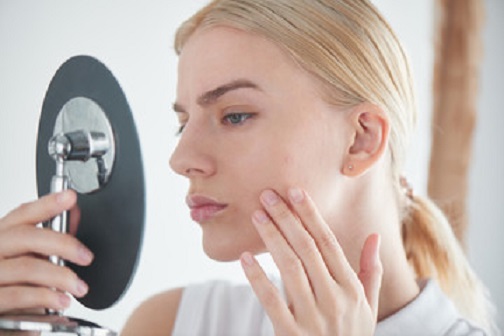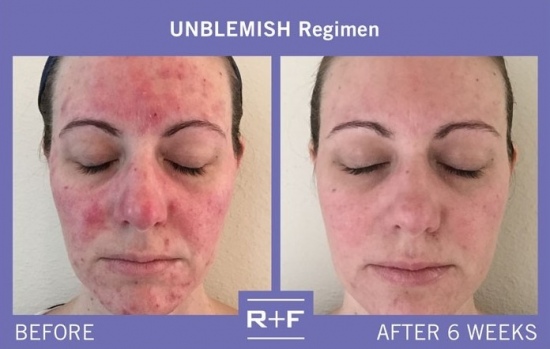Inflammatory skin diseases are the most common problem in dermatology. They come in many forms, from occasional rashes with skin itching, inflammation and redness, to chronic conditions such as dermatitis (eczema), rosacea, seborrheic dermatitis, and psoriasis. Since your skin is your body’s largest organ, don’t you want to take care of it?!
Skin inflammation can be characterized as acute or chronic.
Acute inflammation – Typically can be resolved within one to two weeks with little to no tissue damage.
Chronic inflammation – Can be long lasting and cause some serious and significant tissue damage.
Have You Suffered From Skin Inflammation?
If so, you are NOT alone! Inflammatory skin conditions affect over 35 million Americans who annually spend over $2 billion to treat their symptoms.

Here Are The 3 Main Skin Inflammation Triggers
Environment – This can have a major impact on the health of your skin.
1. Winter – As temperature drops, the humidity level drops. This can cause dry and itchy skin, often causing Eczema.
2. Dry Air – We are 90% water. In dry or cold weather, the water evaporates into the air causing our skin to become dry and irritated.
3. Overheating – This can contribute to skin flare-ups, clogging pores and causing unwanted acne.
4. Specific Work Environments – If you work in an environment where chemicals are present, pay special attention to how you come into contact with them and use protection when needed.
How to protect from environmental skin irritants that cause skin inflammation.
1. Hydrate Your Skin! – Use a heavier cream with glycerin to boost hydration and help cope with the drying air. One of my absolute favorites is Redefine Overnight Restorative Cream. Not only does it have a glycerin base, it also has Hyaluronic Acid to help with anti-aging. WIN WIN!!!
2. Take Short Showers and Baths – Long, hot showers or baths tend to trigger skin irritation, so make sure limit your time in the water and be sure to apply a moisturizer to damp skin. This can help seal moisture into your skin.
3. Use a Gentle Cleanser – Wash your face twice a day with a gentle cleanser to remove the excess bacteria and free radicals that we come into contact with every day. I use a gentle exfoliating cleanser with Salicylic Acid and gentle exfoliating beads clear clogged pores, even skin tone, and remove excess oil and impurities.
4. DON’T Forget Your Sunscreen! – Many inflammatory skin conditions are also caused by sun damage. This can lead to premature ageing of the skin, hyperpigmentation, and skin cancer.
Scary Fact… skin inflammation from chronic skin injury can trigger cancer-causing mutations.

Bad Skincare Habits – Skincare habits play a HUGE role in skin inflammation and appearance of your skin!
1. Washing your face throughout the day. Washing your face several times a day can further irritate your skin, leading to more breakouts.
What to do instead: Wash your face twice a day — when you wake up and before you go to bed. You’ll also want to wash your face when you finish an activity that makes you sweat.
2. Sleeping in your makeup. Even non-comedogenic makeup can cause acne if you sleep in it. That’s the cold, hard truth.
What to do instead: Remove your makeup before you go to bed… no exceptions! If you’re too tired to wash your face, use a makeup remover towelette, but make sure it’s a non-comedogenic towelette.
3. Using makeup and skin care products that can cause acne and inflammation. Many makeup and skincare products contain oil or other ingredients that can cause acne breakouts. If you continue to use them, you may continue to see blemishes. Check out my absolute FAVORITE skincare line, made by dermatologists!
What to do instead: Use only makeup, sunscreen, skin and hair care products that are labeled “non-comedogenic”. These products don’t cause breakouts in most people.
4. Trying a new acne treatment every week or so. This approach can irritate your skin, which can cause breakouts.
What to do instead: Give an acne treatment time to work. It can take an acne treatment 6-8 weeks to see improvement, so make sure to give it time. If you don’t see any improvement by then, you can try another product, but keep in mind, complete clearing generally takes 3 to 4 months.
“Skin inflammation can be debilitating! You DO NOT have to live with it!”

Unhealthy Eating Habits – Sure we all like to indulge in pizza and ice cream from time to time, though eating them regularly can effect our skin by clogging pores, dehydrating our bodies, and increasing inflammation. Many dietary and lifestyle changes may be helpful in removing inflammation triggers. For example:
1. A Low-glycemic index diet – Limit consumption of inflammation causing foods like sodas, refined carbohydrates, and fructose corn syrup in your diet.
2. Reduce intake of total, saturated fat and trans fats – Processed and packaged foods that contain trans fats such as processed seed and vegetable oils and baked goods that contain soybean and corn oil should be reduced from the diet.
3. Eat Your Fruits and Vegetables – Purple and red grapes, blueberries, red berries, apples, spinach, sweet potatoes, brussel sprouts, cabbage, broccoli, and cauliflower are high in natural antioxidants and polyphenols. In addition, they are high in other anti-inflammatory compounds that help protect against inflammation.
4. Fiber – High intake of dietary soluble and insoluble fiber is associated with lowering inflammation.
5. Curcumin – A constituent of turmeric causes significant patient improvements in several inflammatory diseases.
6. Fish Oil – Higher intake of omega-3 fatty acids is associated with lowering inflammation.
The International Journal of Women’s Dermatology published an article, Inflammatory Skin Disorders and Self-esteem, telling numerous stories of how inflammatory skin disorders have deeply affected men and women of all ages. If you have ever struggled with skin inflammation, you can relate to how it affects us in our every day life.

If you enjoyed “Skin Inflammation And It’s Triggers”, I think you would also enjoy “All Acne Breakouts Are Created Equal… Said No One Ever”. Share your story with our community. Many of us have battled skin inflammation at one point or another, so share what has helped YOU work through it!
Send Amy Bell A Message


